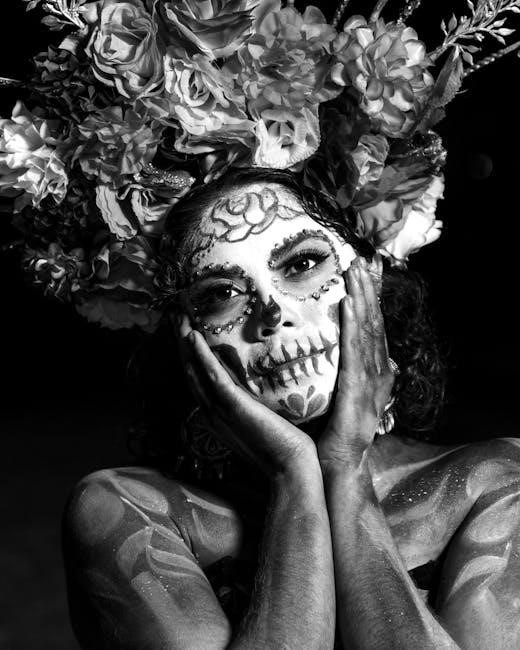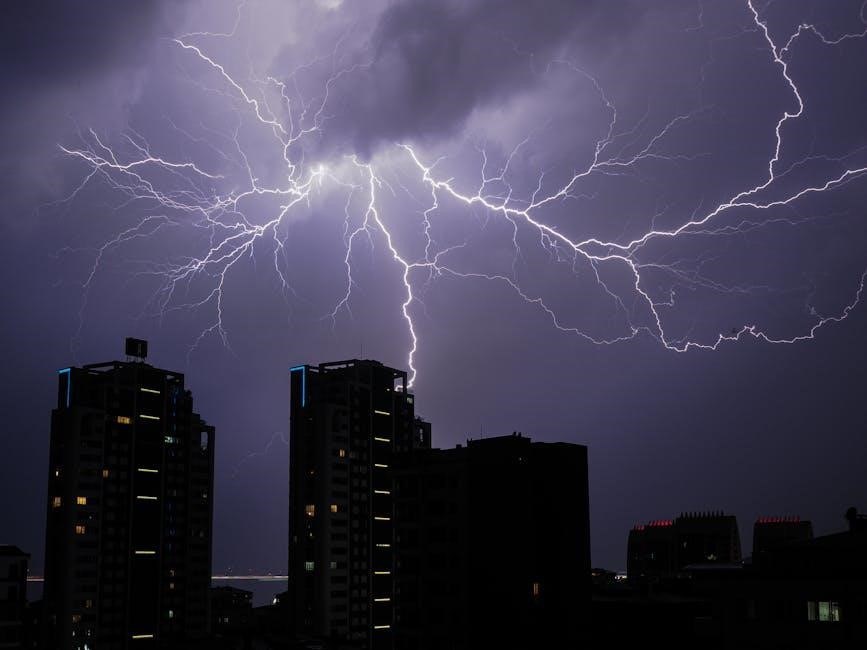The Dark Night of the Soul, a transformative spiritual concept, originates from St. John of the Cross’s 16th-century poem, describing a journey through darkness to divine union, emphasizing profound inner transformation and growth.
1.1 Overview and Significance
The Dark Night of the Soul, rooted in St. John of the Cross’s 16th-century poem, signifies a profound spiritual transformation. It describes a period of inner turmoil and desolation, where individuals feel disconnected from God, leading to deep introspection and growth; Beyond Catholicism, the concept has been adapted to describe crises of faith or existential struggles. Its significance lies in its universal appeal, offering a framework for navigating spiritual and emotional challenges, ultimately leading to greater self-awareness and connection with the divine.
Origins and Historical Background
The Dark Night of the Soul traces back to St. John of the Cross, a 16th-century Carmelite mystic, whose poem and writings laid the groundwork for this concept, rooted in Catholic mysticism and spiritual purification.
2.1 St. John of the Cross and His Influence
St. John of the Cross, a 16th-century Spanish Carmelite friar, profoundly shaped Christian mysticism through his poem and writings on the Dark Night of the Soul. His teachings emphasize spiritual purification and the soul’s journey toward union with God, influencing both Catholic and broader spiritual traditions. His work remains a cornerstone of mystical theology, offering guidance on navigating spiritual crises and finding divine connection amidst darkness.
2.2 The Poem and Its Evolution
The poem Dark Night of the Soul by St. John of the Cross consists of eight stanzas, guiding the soul from worldly distractions to union with God. It was later expanded in his books The Ascent of Mount Carmel and The Dark Night of the Soul, offering deeper theological insights. The poem’s themes of spiritual purification and divine union have evolved in interpretation, influencing various religious and secular contexts, while its core message remains a timeless guide for spiritual seekers.
Key Concepts and Themes
The Dark Night of the Soul explores spiritual growth through darkness, emphasizing faith, doubt, and inner transformation, guiding the soul toward profound union with the divine.
3.1 Spiritual Crisis and Growth
The Dark Night of the Soul represents a profound spiritual crisis, where individuals experience intense suffering and doubt, yet it fosters deep growth. This phase involves a struggle with feelings of abandonment by God, leading to a transformative journey. The soul, guided by faith, moves through darkness toward divine union, emerging with a refined understanding of spirituality. This process, though painful, is essential for spiritual maturity, as it strips away illusions and deepens one’s connection to the divine, ultimately revealing profound clarity and purpose.
3.2 The Role of Faith and Doubt
Faith and doubt intertwine during the Dark Night of the Soul, as individuals grapple with spiritual uncertainty. Faith, though tested, remains a cornerstone, guiding the soul through darkness. Doubt arises from the sense of divine absence, challenging belief systems. Yet, this struggle purifies faith, deepening trust in God’s plan. The journey demands surrender and perseverance, transforming doubt into a catalyst for spiritual growth and fostering a more profound, resilient faith rooted in divine love and surrender.

The Poem Explained
St. John of the Cross’s poem, The Dark Night of the Soul, outlines the soul’s journey from worldly distractions to divine union, using imagery of night and fire to symbolize purification and transformation.
4.1 Structure and Imagery
The poem The Dark Night of the Soul is structured in eight stanzas, each following a consistent rhyme scheme. Rich imagery, such as night, fire, and purification, symbolizes the soul’s journey through spiritual darkness to divine union. The night represents inner turmoil and separation from God, while fire signifies purification and transformation. This structure mirrors the soul’s progression from confusion to clarity, emphasizing the transformative power of enduring spiritual trials.
4.2 Symbolism and Metaphors
The poem employs profound symbolism, with the “dark night” representing spiritual separation and inner purification. Fire symbolizes divine love and transformation, while the soul’s journey through darkness mirrors the path to union with God. Natural imagery, such as night and flame, underscores the struggle and renewal, guiding the soul toward divine enlightenment and profound spiritual transformation.

Stages of the Dark Night
The dark night of the soul involves distinct stages of spiritual purification and growth, necessary for deepening one’s connection with God, recurring as needed for greater enlightenment.
5.1 The Journey Through Darkness
The dark night of the soul is a transformative journey marked by intense spiritual purification and inner turmoil. It begins with a sense of disconnection from God, leading to feelings of doubt and desolation. This phase is not a punishment but a divine invitation to surrender worldly attachments and deepen faith. Through this darkness, the soul is stripped of illusions, enabling a profound reconnection with God. The journey, though painful, fosters spiritual maturity and a deeper understanding of divine love.
5.2 Psychological and Emotional Impact
The dark night of the soul often manifests as intense emotional and psychological struggles, including feelings of isolation, doubt, and spiritual desolation. Individuals may experience a deep sense of loss and disconnection from God, leading to emotional pain and confusion. This phase can feel overwhelming, but it is a necessary step toward spiritual growth. The soul is forced to confront its limitations and dependencies, fostering self-awareness and resilience. While challenging, this process ultimately leads to a deeper, more authentic relationship with oneself and the divine.
Psychological and Emotional Aspects
The dark night of the soul involves profound emotional turmoil, including feelings of abandonment and spiritual despair, yet it fosters resilience and deeper self-awareness through transformation.
6.1 Coping Mechanisms and Support

Navigating the dark night of the soul requires patience, faith, and support. Seeking guidance from spiritual mentors or communities can provide comfort and clarity. Engaging in reflective practices like prayer, meditation, or journaling helps process emotions and maintain hope. Embracing the journey as a transformative experience, rather than resisting it, fosters resilience. Surrounding oneself with understanding individuals who acknowledge the spiritual struggle can alleviate feelings of isolation; Psychological support, when needed, complements the spiritual journey, ensuring holistic well-being during this challenging yet enriching period.

Modern Interpretations
The Dark Night of the Soul is now widely interpreted beyond Catholicism, symbolizing personal transformation, emotional struggles, and existential crises, resonating in secular and psychological contexts globally.
7.1 Beyond Catholicism
The Dark Night of the Soul extends beyond Catholicism, resonating in secular and psychological contexts. It symbolizes personal transformation and existential crises, reflecting universal human experiences of doubt and renewal. Modern interpretations often link it to emotional struggles and self-discovery, transcending religious boundaries. This concept has been embraced in therapy, spirituality, and philosophy, offering a metaphor for navigating life’s challenges and emerging transformed.
7.2 Cultural and Secular Views
The Dark Night of the Soul has transcended religious boundaries, resonating in cultural and secular contexts. It is often seen as a universal metaphor for personal crisis, self-discovery, and transformation. In modern literature and psychology, the term describes periods of emotional or existential struggle, offering a framework for understanding and navigating life’s challenges. This broader interpretation highlights its relevance beyond spirituality, making it a relatable concept for diverse audiences seeking meaning and growth amidst adversity.
Connection to God and Spirituality
The Dark Night of the Soul represents a profound spiritual journey, guiding individuals through darkness to a deeper connection with God, fostering faith, purification, and divine union.
8.1 Deepening Faith and Understanding
The Dark Night of the Soul fosters profound spiritual growth, leading to a deeper understanding of faith. Through this journey, individuals experience purification, letting go of worldly distractions, and develop a clearer connection with God. St. John of the Cross’s teachings emphasize that this period of darkness is not an end but a transformative process, ultimately resulting in a more intimate and meaningful union with the divine, enriching one’s spiritual life and faith journey.

Practical Advice and Guidance
Navigate the Dark Night by embracing patience, trusting divine plans, and seeking support. Focus on inner reflection, prayer, and surrender to foster spiritual renewal and strength.
9.1 Navigating the Dark Night
Navigating the Dark Night requires surrender, patience, and faith. Embrace the process, seeking guidance from spiritual mentors and engaging in introspective practices like journaling or prayer. Trust in divine timing and the transformative purpose of this journey. Maintain self-care and lean on supportive communities to alleviate feelings of isolation. Remember, this period, though challenging, is temporary and essential for profound spiritual growth and deeper connection with the divine.
The Dark Night of the Soul is a profound spiritual journey leading to deeper faith and union with God, leaving a lasting impact on one’s life and understanding of divine presence, as explored in St. John’s works.
10.1 The Lasting Impact of the Dark Night
The Dark Night of the Soul leaves an indelible mark, fostering profound spiritual growth and a deeper connection to God. It reshapes one’s faith, offering clarity and purpose. The journey, though challenging, culminates in a transformative understanding of divine love and inner peace. Those who emerge from this experience often embrace a more authentic, resilient spirituality, carrying the lessons of darkness into a brighter, more meaningful life. The soul’s encounter with darkness becomes a catalyst for eternal light and renewal.